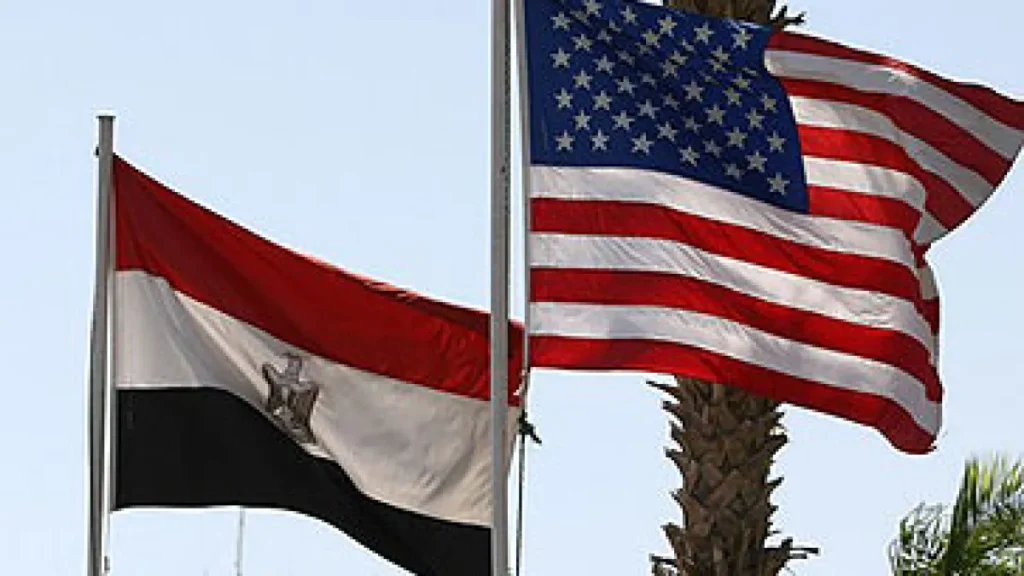The Biden administration announced on Wednesday that it will grant Egypt its full $1.3 billion in military aid for 2024, overriding human rights conditions for the first time during this administration. The decision has raised concerns, given Egypt’s ongoing human rights issues, but it reflects the strategic importance of Cairo to U.S. national security interests, especially in mediating between Israel and Hamas amid the ongoing Gaza conflict.
A State Department spokesperson confirmed the move, explaining that $320 million of the allocated military financing was previously tied to Egypt’s human rights record. Of that, $225 million was waived by Secretary of State Antony Blinken, who cited U.S. national security interests as the primary reason for bypassing the certification requirements related to Egypt’s rights situation.
“This decision is important to advancing regional peace and Egypt’s specific and ongoing contributions to U.S. national security priorities,” the spokesperson said. They added that Egypt has been instrumental in attempting to negotiate a ceasefire between Israel and Hamas, deliver humanitarian aid to Gaza, and work towards resolving the ongoing conflict in the region.
The relationship between Washington and Cairo has long been fraught with human rights concerns, as President Abdel Fattah al-Sisi’s government faces repeated accusations of abuses, including torture, arbitrary detentions, and enforced disappearances. Despite these issues, Egypt remains a critical ally in maintaining regional stability. Sisi has denied the existence of political prisoners and has defended his government’s policies, asserting that stability and economic security are priorities for Egypt.
The Biden administration’s reliance on Egypt has intensified in the wake of the Gaza conflict, which erupted after Palestinian militants launched attacks on Israel on October 7. Egypt has played a pivotal role in ceasefire negotiations and is a key conduit for much-needed humanitarian aid entering Gaza.
While Blinken granted the waiver, citing Egypt’s progress on human rights issues, he also withheld $95 million last year over the country’s lack of progress in releasing political prisoners. This year, the administration determined that Egypt had made enough headway in this area, releasing $95 million in aid tied to improvements regarding political prisoners.
Among the cited improvements were efforts to draft legislation reforming pre-trial detention, releasing some prisoners, and lifting travel bans and asset freezes related to foreign-funded non-governmental organizations (NGOs). However, human rights groups remain skeptical, with many questioning the effectiveness of the proposed legislative reforms. They argue that key figures, including human rights lawyers, remain under travel bans and that arrests continue unabated.
Seth Binder, director of advocacy at the Middle East Democracy Center (MEDC), pointed out that while approximately 970 political prisoners have been released since September 2023, more than 2,200 individuals were arbitrarily arrested during the same period, based on data from Egyptian and international human rights organizations. “There’s no reasonable assessment where one could say there’s been progress on the human rights situation in Egypt. It remains a huge crisis,” Binder stated, emphasizing that tens of thousands of political prisoners remain incarcerated.
Despite ongoing human rights concerns, the State Department has confirmed that it will continue “a rigorous dialogue with the Egyptian government on the importance of concrete human rights improvements.” Washington has emphasized that further progress is essential for maintaining a strong U.S.-Egypt partnership.
The Biden administration’s decision signals the critical role Egypt plays in U.S. foreign policy in the Middle East, particularly as diplomatic efforts focus on achieving stability in Gaza and addressing the broader humanitarian crisis. Nonetheless, the ongoing human rights situation in Egypt remains a contentious issue that will likely continue to complicate relations between the two nations.
As Egypt continues to balance its role as a key U.S. ally with the scrutiny of its human rights record, Washington’s decision to grant full military aid underscores the complexities of foreign policy in a region marked by ongoing conflict and instability. While efforts to address political imprisonment and broader human rights concerns are underway, many observers question the depth of Egypt’s progress as it continues to navigate international and domestic pressures.



